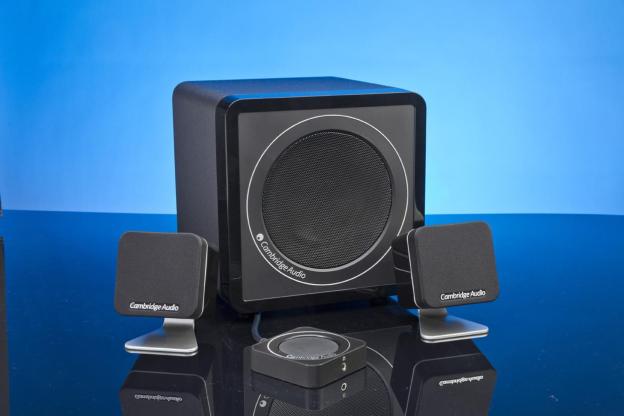
When it comes to so-called “computer speakers,” it’s hard to know which brands to trust. For whatever reason, it’s rare to see recognized audio manufacturers producing computer speakers. Rare exceptions would include Harman Kardon, Bose, and B&W, but there’s always room for one more seat at the table. Now, Cambridge Audio has come to the party with a new 2.1 audio system called the Minx M5 which features a subwoofer and two satellite speakers with a desktop control hub.
The system has a USB audio input and its own digital-to-analog converter (DAC) that Cambridge Audio says can process digital audio “much purer” than a computer’s soundcard can. This is one of the system’s best features, the company says, particularly because it makes everything from streaming audio, video and video games sound better than they normally would.
Each satellite has a 2-inch driver powered by 15 watts. They’re also quite small, measuring no more than 3-inches in height, width or depth.
The subwoofer is small enough to be hidden from sight completely, measuring about 8-inches in height, width and depth. It includes an integrated digital amplifier that can pump out enough juice to fill a room with high-quality sound. The adjustable bass control lets users tune the Minx M5 based on the woofer’s location.
The desktop control hub takes care of power and volume adjustment, with a 3.5 mm auxiliary input for plugging in any audio playback device, plus a headphone jack for private listening. The system’s speaker stands and cables all come included in the box.
The Minx M5 is available now direct from Cambridge Audio and select retailers for $230.




